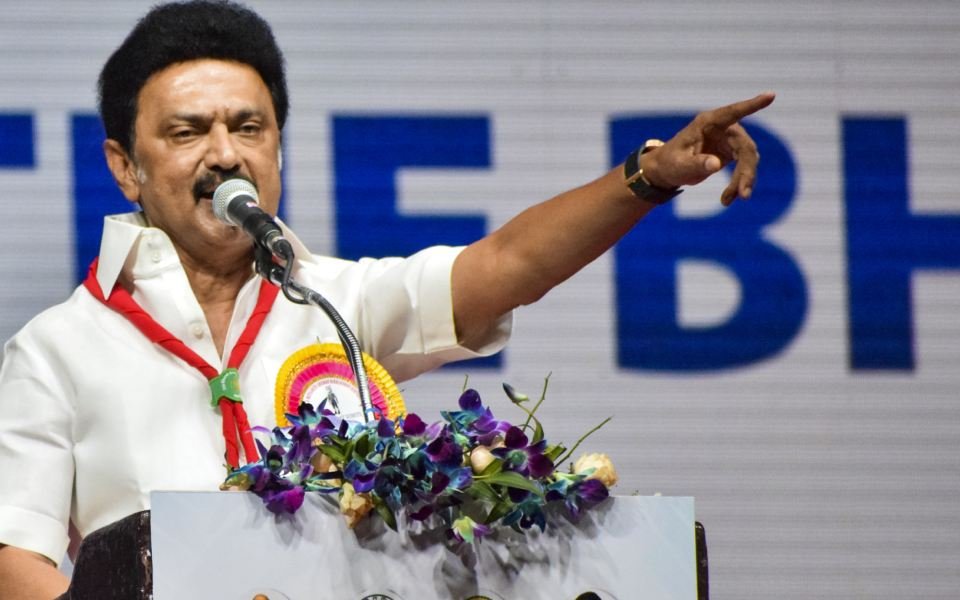In a recent turn of events, Union Education Minister Dharmendra Pradhan has hit back at Tamil Nadu Chief Minister M. K. Stalin’s criticism of the National Education Policy (NEP), urging political leaders to rise above party lines and work towards the collective betterment of India’s education system. Pradhan’s response came after Stalin’s vocal opposition to the NEP, claiming that it would undermine the federal structure and impose centralization over state-controlled education.
“Dharmendra Pradhan responds to Tamil Nadu CM Stalin’s criticism on the National Education Policy (NEP), urging a rise above political differences for the betterment of India’s education system.”
The National Education Policy, which was introduced in 2020, aims to overhaul the country’s education system, focusing on a more inclusive and holistic approach to learning. However, the policy has faced opposition from several regional parties, especially in Tamil Nadu, where political leaders like Stalin argue that it infringes upon the autonomy of state governments.
In his latest remarks, Dharmendra Pradhan called for constructive dialogue and collaboration among all political entities, emphasizing that educational reforms should not be viewed through the prism of political ideologies but rather as a necessity for the nation’s future.
Pradhan’s Appeal for Unity
Addressing the controversy surrounding NEP, Dharmendra Pradhan stated, “Educational reforms are essential for the progress of our nation. It is important for us to rise above political differences and work together for the betterment of students and the future of the country. The NEP aims to provide quality education for all and does not undermine the role of state governments.”
The Education Minister highlighted the need for a balanced approach in implementing the NEP while respecting the constitutional framework. He emphasized that the policy was designed with the aim to make India a global leader in education, promoting a decentralized approach within the broader national framework.
Pradhan’s response to Stalin’s objections also addressed the centralization fears raised by the Tamil Nadu Chief Minister. According to Pradhan, the NEP includes provisions that allow states to have a significant role in the implementation of educational reforms, ensuring that local needs and diversity are taken into account.
Stalin’s Concerns on NEP
M. K. Stalin, who has been a vocal critic of the National Education Policy, argued that the NEP was a step towards undermining the federal nature of India’s education system. In particular, Stalin expressed concern over the introduction of a common curriculum and centralized control over school boards, which, according to him, would erode the autonomy of state governments in shaping their educational priorities.
The Tamil Nadu CM further stated that the NEP’s provisions could lead to the imposition of Hindi as a compulsory language, which is a contentious issue in the southern states. Stalin also expressed skepticism about the NEP’s emphasis on privatization of education, fearing that it could increase the financial burden on students and families.
Stalin’s opposition to NEP is grounded in the belief that education should remain under state control, especially when it comes to tailoring it to the unique needs of regional cultures and languages. This criticism has resonated with many regional parties who fear the centralization of power could diminish the diversity that the country’s education system currently accommodates.
The Role of NEP in National Development
Despite the political differences, the National Education Policy is being seen as a crucial step towards modernizing India’s education sector. The NEP emphasizes multi-disciplinary learning, the introduction of new pedagogical methods, and a focus on innovation, research, and skill development. It aims to make education accessible and inclusive by ensuring equitable access to quality education for all children across the country.
One of the key goals of the NEP is to bridge the gap between urban and rural education systems, allowing students from remote areas to have access to the same quality of education as their urban counterparts. The policy also introduces the concept of early childhood care and education (ECCE) as a fundamental part of the curriculum, a step forward in ensuring the holistic development of children from a young age.
Additionally, the NEP places a significant emphasis on promoting local languages and encouraging cultural diversity, which has been a major concern for several states, including Tamil Nadu. Contrary to the claims made by critics, the policy encourages the teaching of local languages while offering flexibility in the medium of instruction.
The Need for Dialogue and Consensus
Dharmendra Pradhan’s response to Stalin’s criticism has urged for an open dialogue to address concerns regarding the NEP, stressing that constructive debate is essential for the success of any policy. While political differences are natural in a democracy, Pradhan emphasized that education should be a subject of national importance, and it should transcend party politics.
Pradhan also pointed out that the success of educational reforms depends on cooperation from both the central and state governments. A collaborative approach between different levels of governance will ensure that the NEP’s objectives are implemented effectively, while respecting regional languages, cultures, and the diversity that India is known for.
Future Outlook on NEP Implementation
The implementation of the National Education Policy is still in its early stages, with several states taking different approaches to how they incorporate its provisions into their education systems. While some states like Uttar Pradesh and Madhya Pradesh have begun making substantial changes in their curricula and policies based on the NEP, others, particularly Tamil Nadu, continue to voice concerns about its potential drawbacks.
Moving forward, it is likely that the NEP will evolve based on feedback from various stakeholders, including state governments, educators, students, and experts. As the policy is rolled out more comprehensively across the country, it will be crucial to balance the goals of centralization with the preservation of state autonomy, particularly in areas like curriculum design, language policies, and cultural education.
Conclusion: A Call for Cooperation in Education Reforms
Dharmendra Pradhan’s response to Stalin’s criticism of the NEP serves as a reminder that education is one of the most critical aspects of national development and should not be subjected to political polarization. With both state and central governments having vital roles to play, cooperation and unity will be key to the success of the NEP. As India moves forward in its quest for a better and more inclusive education system, it is essential to keep the focus on the future of students and the nation, rather than political divisions.







